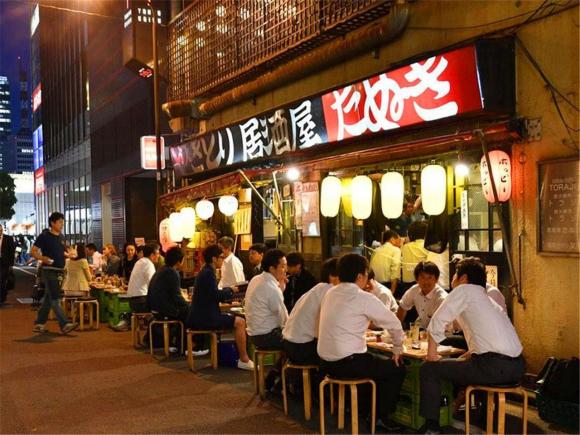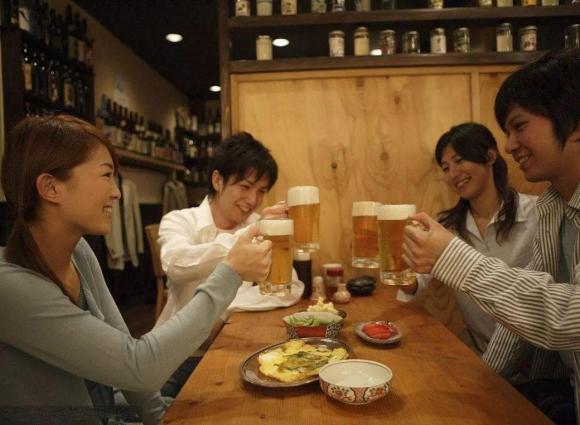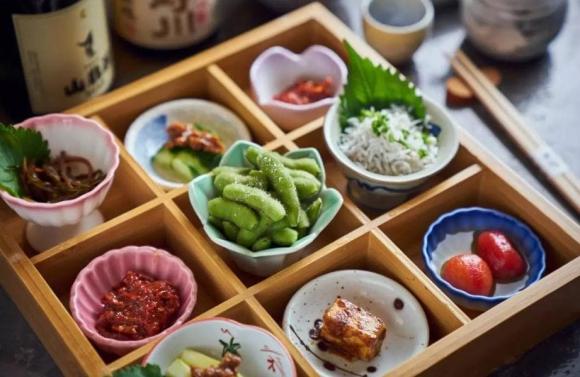When we think of Japan, images of cherry blossoms, shy girls in kimonos, and samurai often come to mind. These are iconic aspects of Japanese culture. But for those who love the country, there’s another familiar cultural staple: Izakaya.

Izakaya – Japan’s Sidewalk Beer Garden
Izakaya is a small bar serving drinks and light snacks at affordable prices. The Japanese love their beer and often head to izakayas after work to unwind with colleagues and friends. It’s a place to relax and enjoy a few drinks and bites without breaking the bank.
Each month, Japanese patrons allocate a fixed amount of money to spend at these establishments. This reveals a lot about the Japanese drinking culture. Despite their love for beer, you’ll rarely see a Japanese person with a ‘beer belly.’ So, how do they manage to stay trim despite their drinking habits?

Japanese Patrons Allocate a Fixed Monthly Budget for Izakaya Visits
The first reason lies in the discipline of the Japanese people. In countries like Vietnam and China, drinking sessions often involve excessive consumption of alcohol and greasy bar snacks like peanuts, fried pickles, and offal dishes. However, the Japanese approach is different; they avoid these fatty snacks, recognizing that they are often the main cause of weight gain.
Secondly, the Japanese way of drinking differs significantly from many other cultures. They typically have a few drinks after work, accompanied by light and healthy snacks. These snacks are carefully chosen to be low in fat, and a small portion is usually enough to accompany a glass of beer or a cup of sake for the evening.

The Japanese Enjoy a Few Drinks with Light and Healthy Snacks
Even the bar owners themselves are particular about not serving alcohol to drunk patrons and prefer customers who don’t overstay their welcome.
Another factor is Japan’s attitude towards obesity. With the exception of certain professions like sumo wrestling, Japanese men are expected to maintain a trim physique, as it is considered important for their social image.
The Magical Elixir for Your Roses: Unlocking Thriving Growth, Abundant Buds, and Blossoms as Big as Bowls
When it comes to watering your roses, you can do more than just using plain water. Imagine a secret weapon that takes your rose garden to the next level. We’re talking about a special type of water that goes beyond the basics, infusing your roses with an extra boost of nutrients. It’s time to unlock the potential of your blooms and watch them flourish like never before.





































